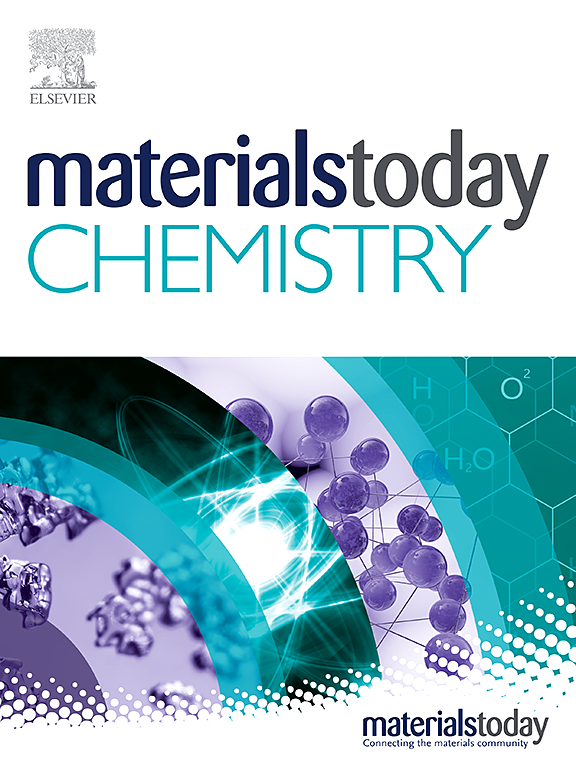Photothermal therapy and cell imaging tracking of porous silicon nanoparticle by magnesiothermic reduction and surface modification
IF 6.7
2区 化学
Q1 CHEMISTRY, MULTIDISCIPLINARY
引用次数: 0
Abstract
The synthesis of silicon nanoparticles (PSi NPs) from silica nanoparticles (SiO₂) via magnesium (Mg) reduction is a promising technique due to its simplicity and cost-effectiveness. In this study, silica is utilized as the primary precursor and is subjected to a reduction process using magnesium powder as the reducing agent. By covalently attaching Fluorescein Isothiocyanate (FITC) to the surface of PSi NPs, we aim to enhance their fluorescence intensity and stability while also improving their surface reactivity and biocompatibility. The modified PSi NPs system was characterized using various microscopic techniques, Raman spectra, porosity and morphology analysis, Zeta potential, and analysis of organic functional groups to confirm successful conjugation and to evaluate changes in surface morphology, fluorescence properties, and colloidal stability. By leveraging the inherent photothermal conversion efficiency of PSi NPs, we explore their capacity to generate localized heat upon near-infrared (NIR) light irradiation, effectively inducing cancer cell apoptosis. Concurrently, the natural fluorescence of PSi NPs is harnessed to enable high-resolution imaging, facilitating real-time tracking and monitoring of therapeutic processes. The PSi NPs were subjected to a series of in vitro experiments to assess their photothermal efficiency, cytotoxicity, and imaging capabilities. Results demonstrate that PSi NPs exhibit excellent photothermal effects, leading to significant cell death in targeted cancer cells upon NIR exposure, while their fluorescence properties provide clear and detailed imaging. These findings highlight the potential of PSi NPs as multifunctional agents in cancer therapy, combining effective photothermal treatment with non-invasive imaging, thereby enhancing the precision and efficacy of therapeutic interventions.通过镁热还原和表面改性实现多孔硅纳米粒子的光热治疗和细胞成像跟踪
通过镁(Mg)还原法从二氧化硅纳米颗粒(SiO₂)合成硅纳米颗粒(PSi NPs)是一种很有前景的技术,因为它简单易行,成本效益高。在本研究中,二氧化硅被用作主要前体,并使用镁粉作为还原剂进行还原处理。通过在 PSi NPs 表面共价连接异硫氰酸荧光素(FITC),我们旨在增强其荧光强度和稳定性,同时提高其表面活性和生物相容性。我们利用各种显微技术、拉曼光谱、孔隙率和形态分析、Zeta 电位和有机官能团分析对改性 PSi NPs 系统进行了表征,以确认共轭成功,并评估其表面形态、荧光特性和胶体稳定性的变化。利用 PSi NPs 固有的光热转换效率,我们探索了它们在近红外(NIR)光照射下产生局部热量的能力,从而有效诱导癌细胞凋亡。同时,我们还利用 PSi NPs 的天然荧光实现了高分辨率成像,为实时跟踪和监测治疗过程提供了便利。对 PSi NPs 进行了一系列体外实验,以评估其光热效率、细胞毒性和成像能力。结果表明,PSi NPs 具有出色的光热效应,在近红外照射下可导致靶向癌细胞显著死亡,同时其荧光特性可提供清晰、详细的成像。这些发现凸显了 PSi NPs 在癌症治疗中作为多功能制剂的潜力,它将有效的光热治疗与非侵入性成像相结合,从而提高了治疗干预的精确性和有效性。
本文章由计算机程序翻译,如有差异,请以英文原文为准。
求助全文
约1分钟内获得全文
求助全文
来源期刊

Materials Today Chemistry
Multiple-
CiteScore
8.90
自引率
6.80%
发文量
596
审稿时长
33 days
期刊介绍:
Materials Today Chemistry is a multi-disciplinary journal dedicated to all facets of materials chemistry.
This field represents one of the fastest-growing areas of science, involving the application of chemistry-based techniques to the study of materials. It encompasses materials synthesis and behavior, as well as the intricate relationships between material structure and properties at the atomic and molecular scale. Materials Today Chemistry serves as a high-impact platform for discussing research that propels the field forward through groundbreaking discoveries and innovative techniques.
 求助内容:
求助内容: 应助结果提醒方式:
应助结果提醒方式:


